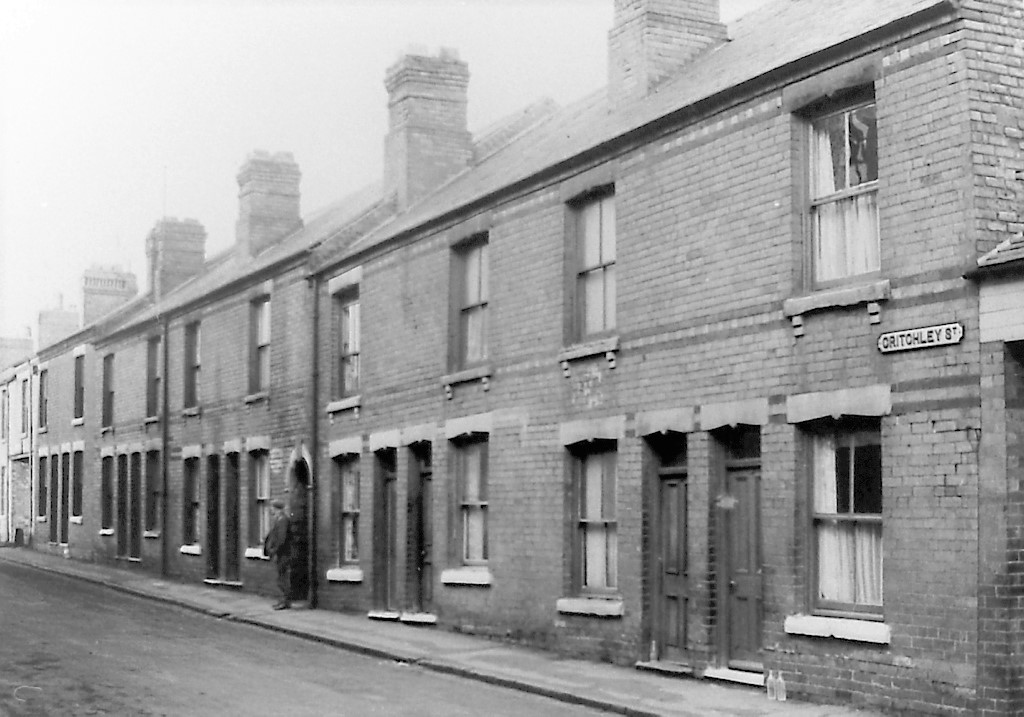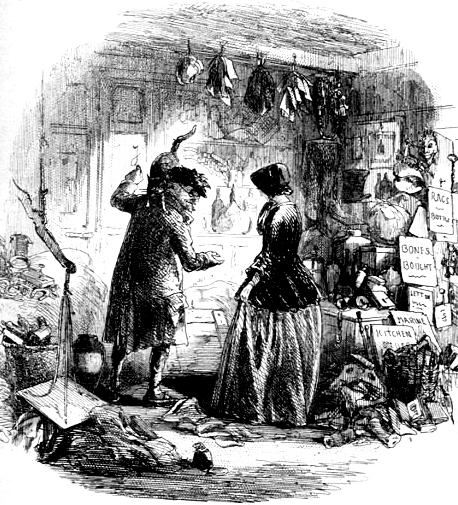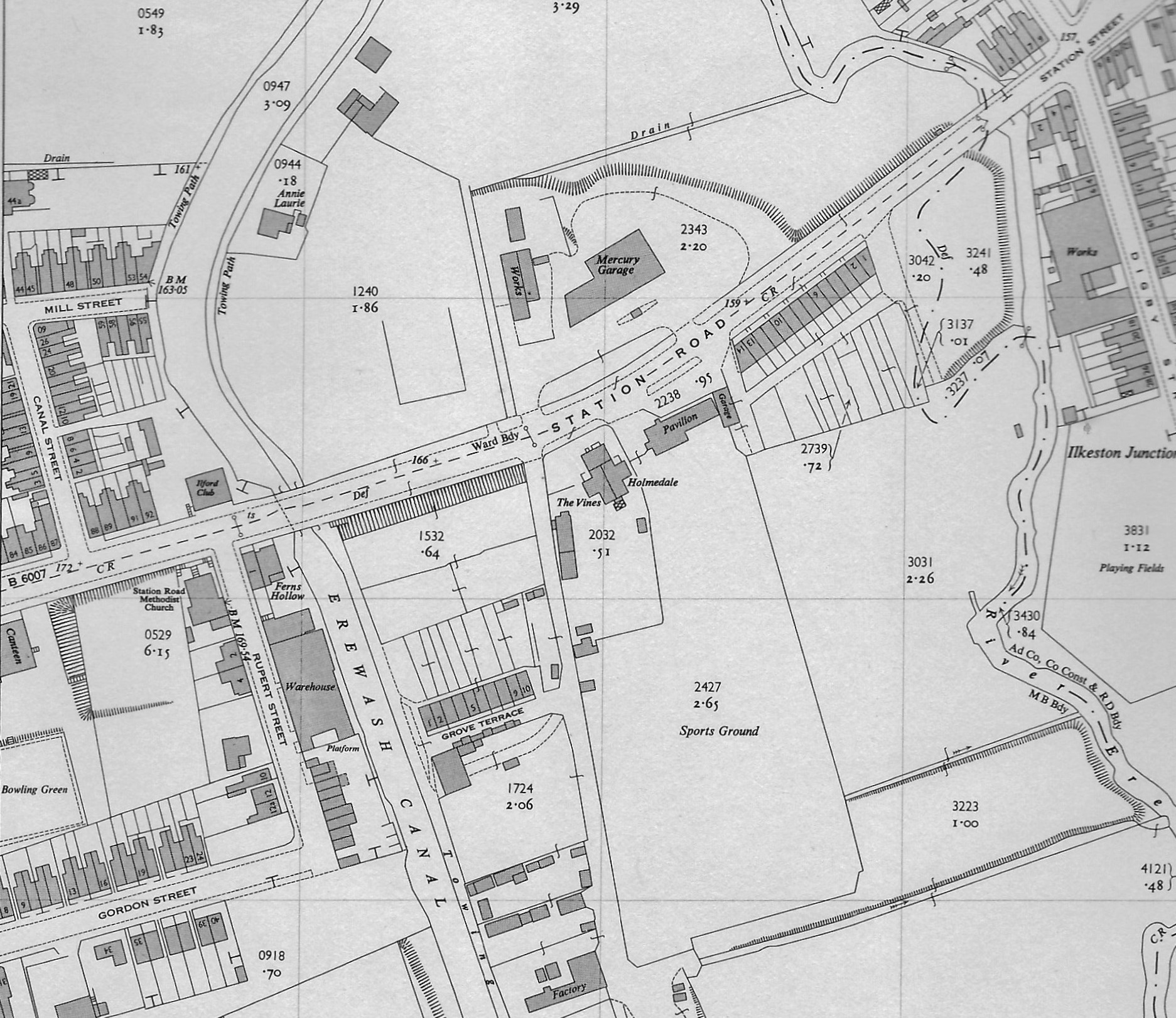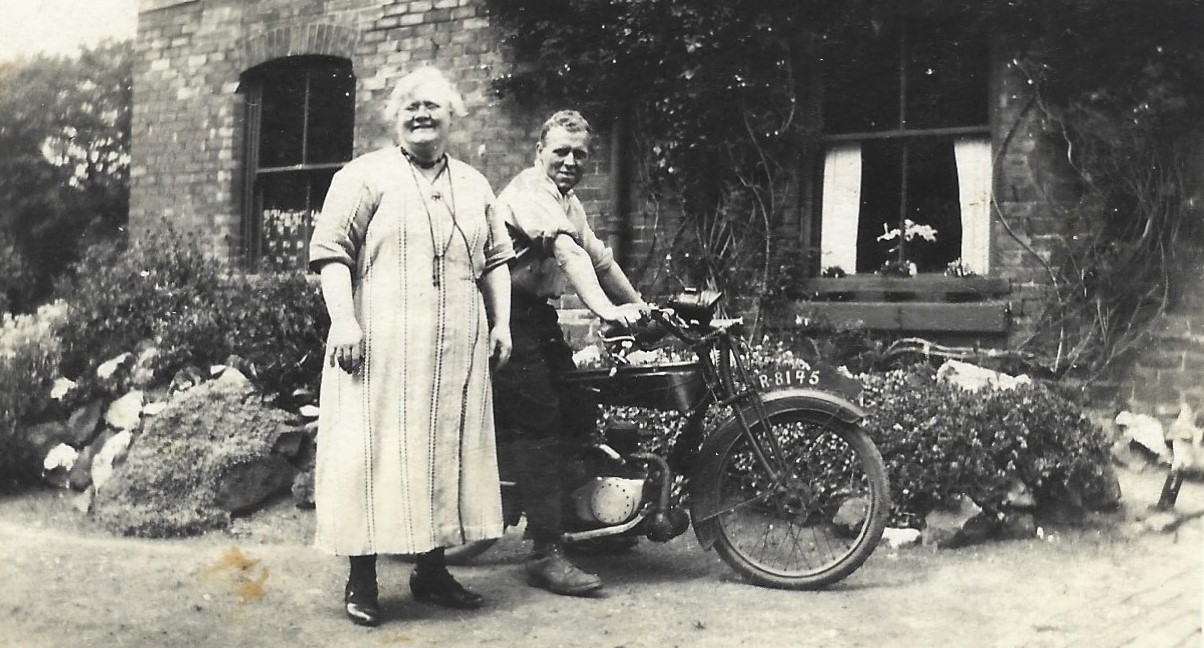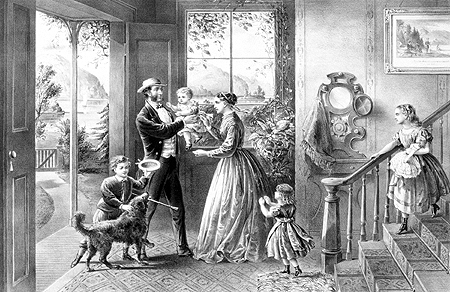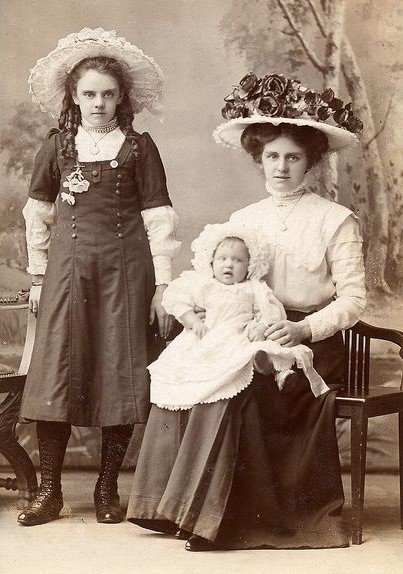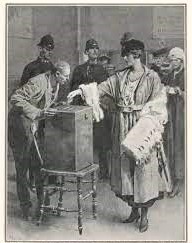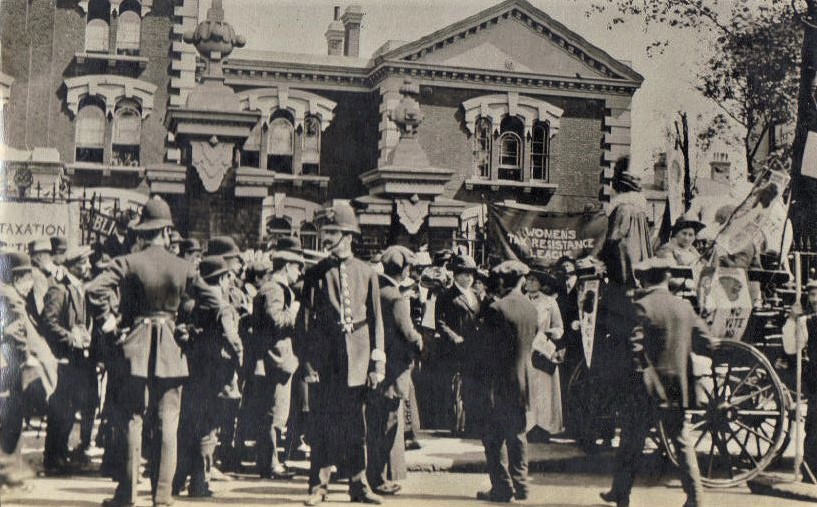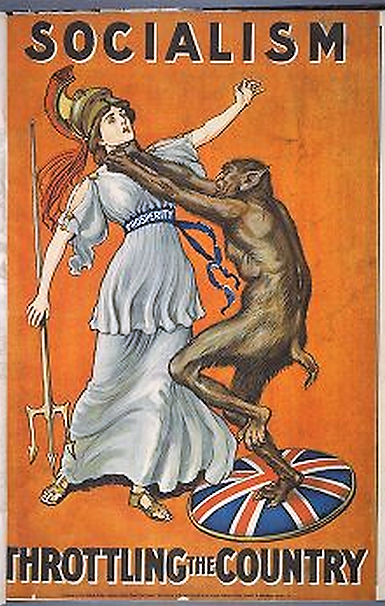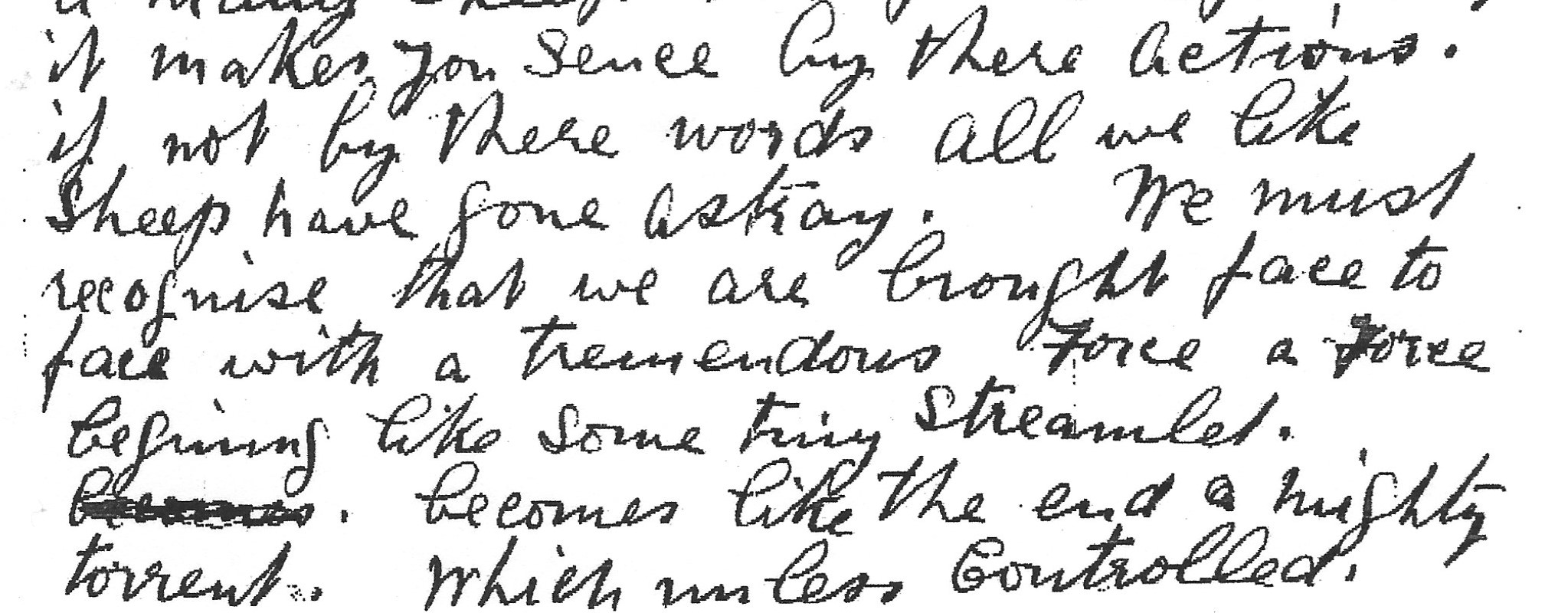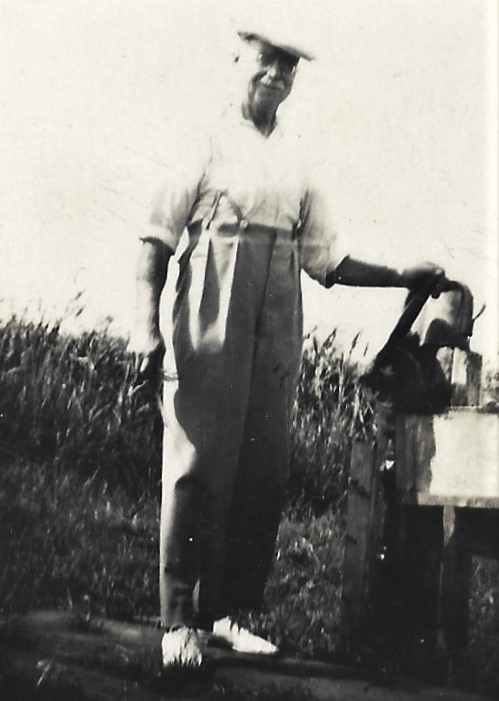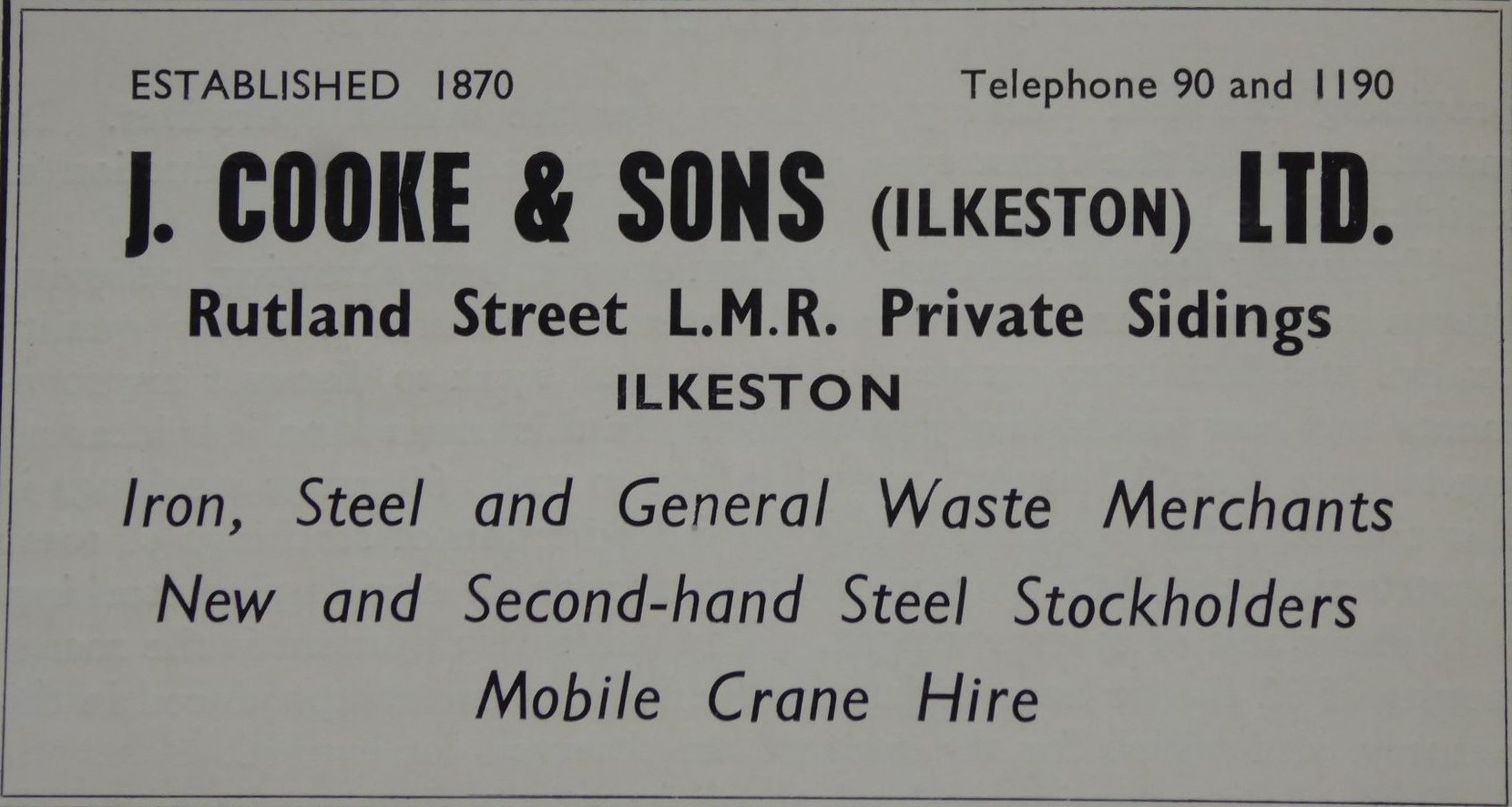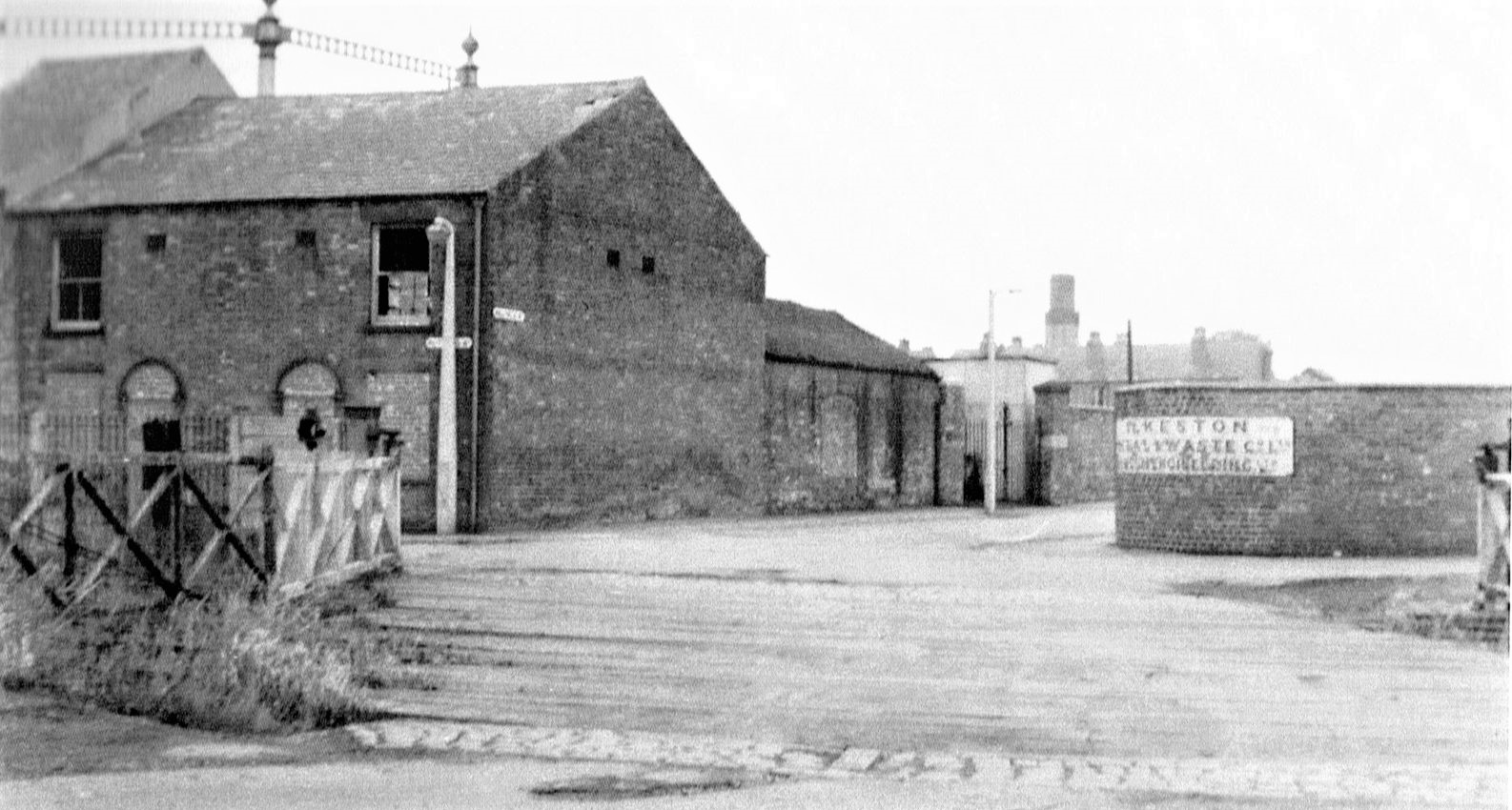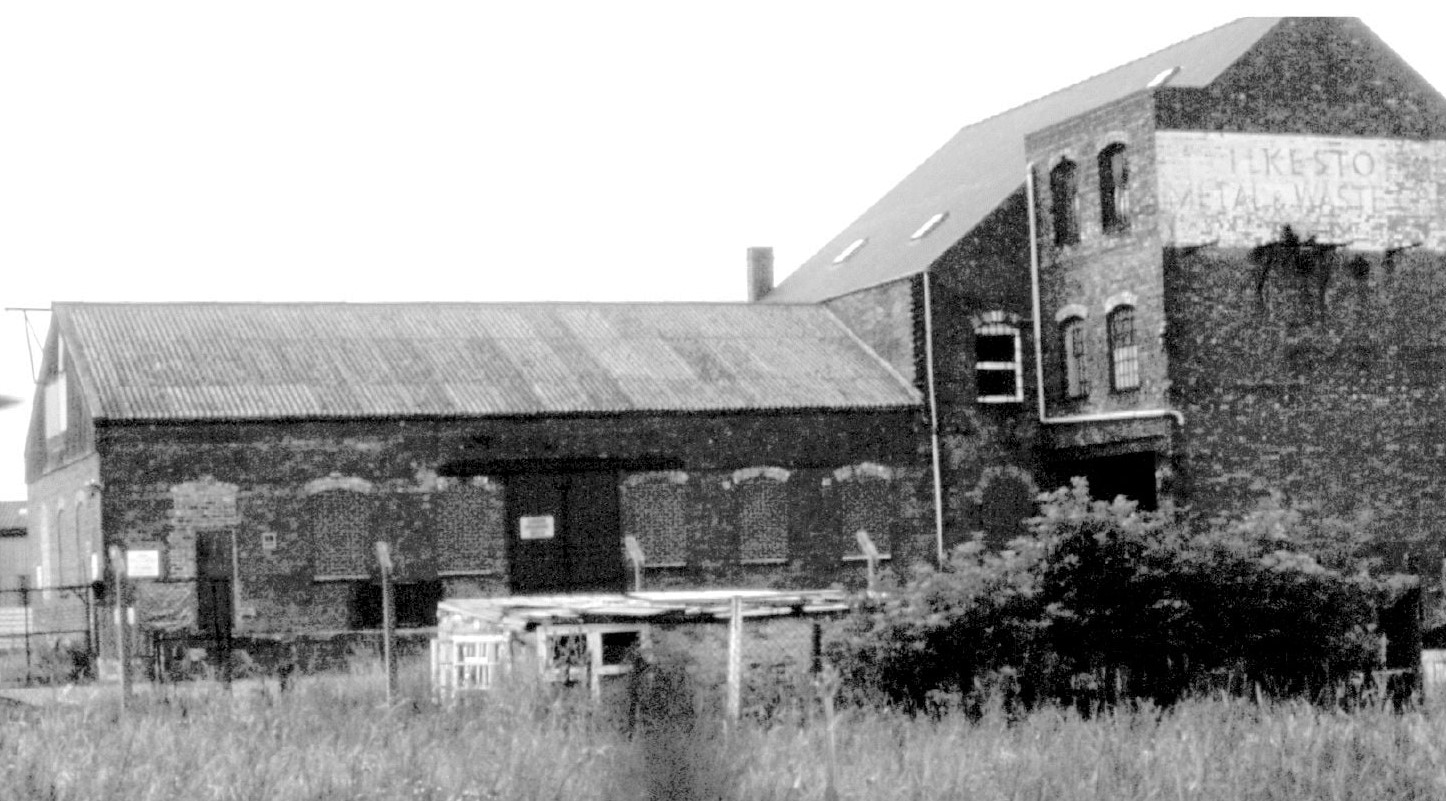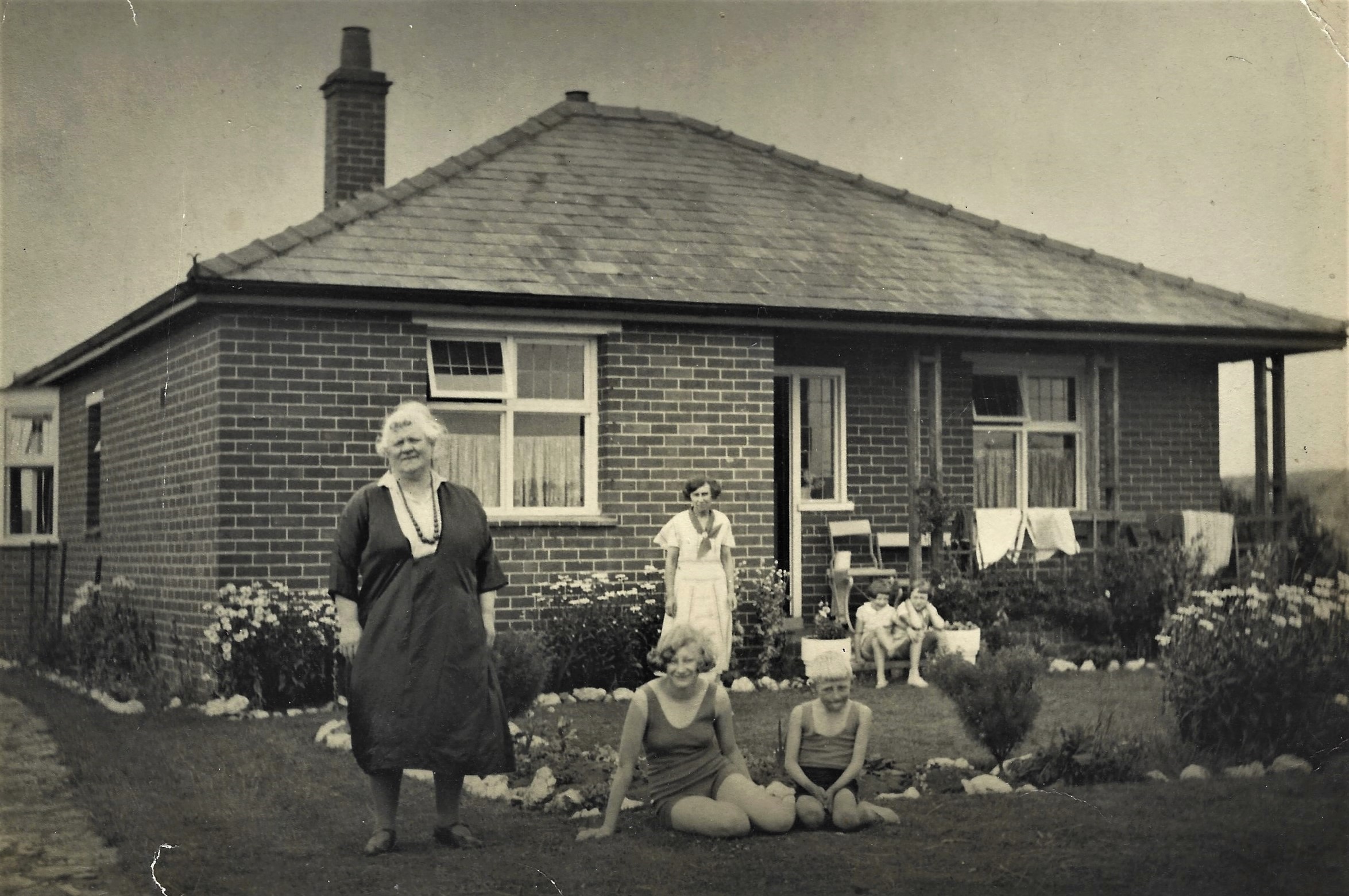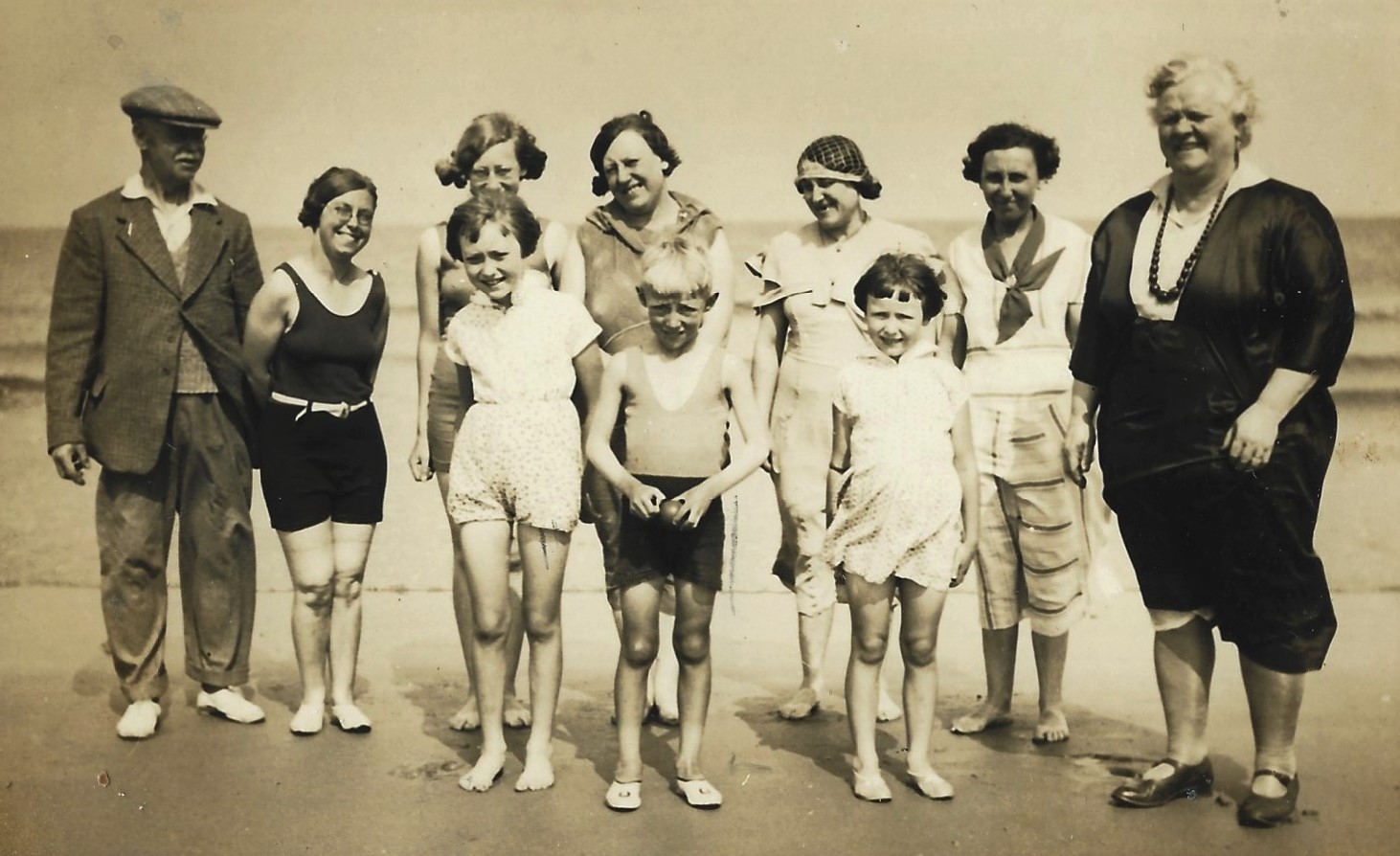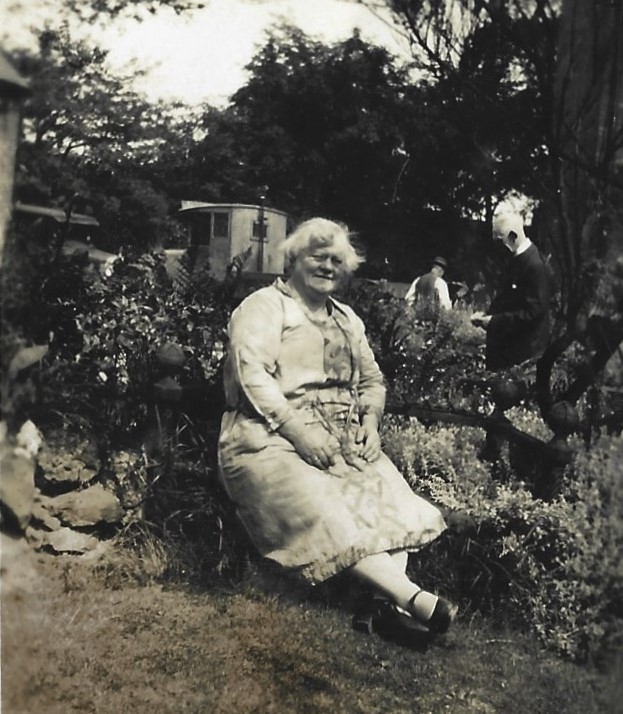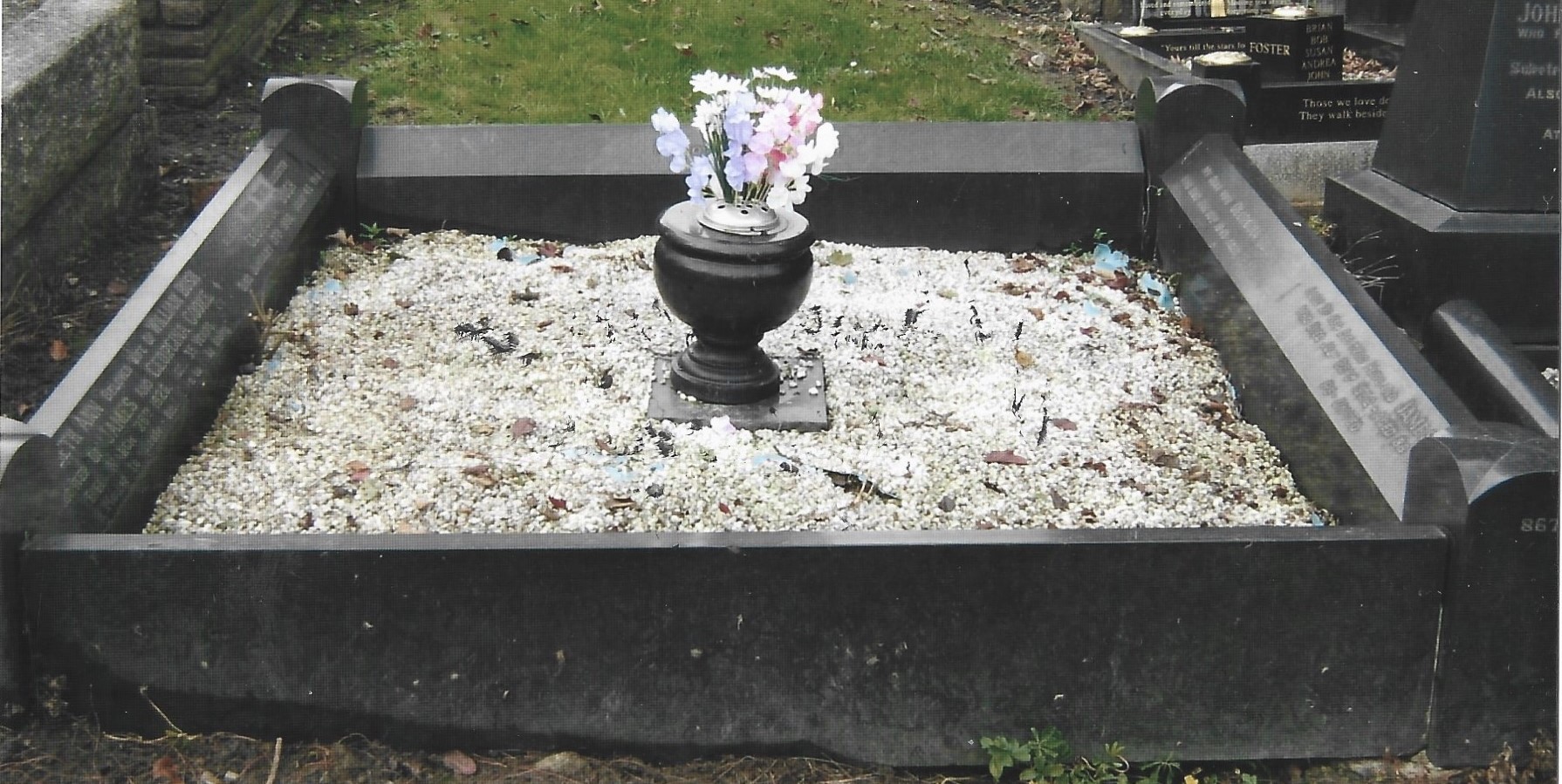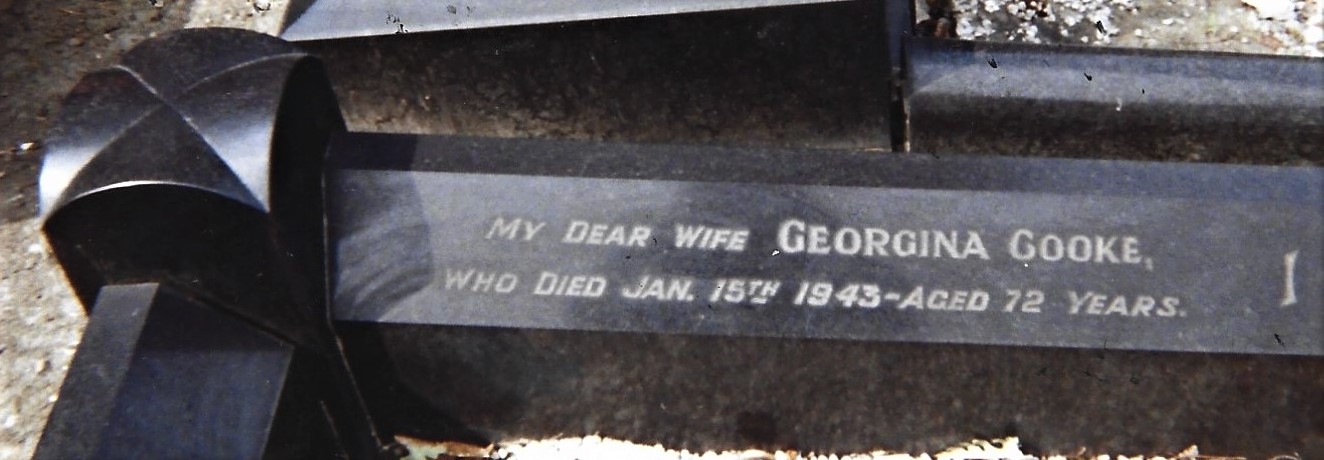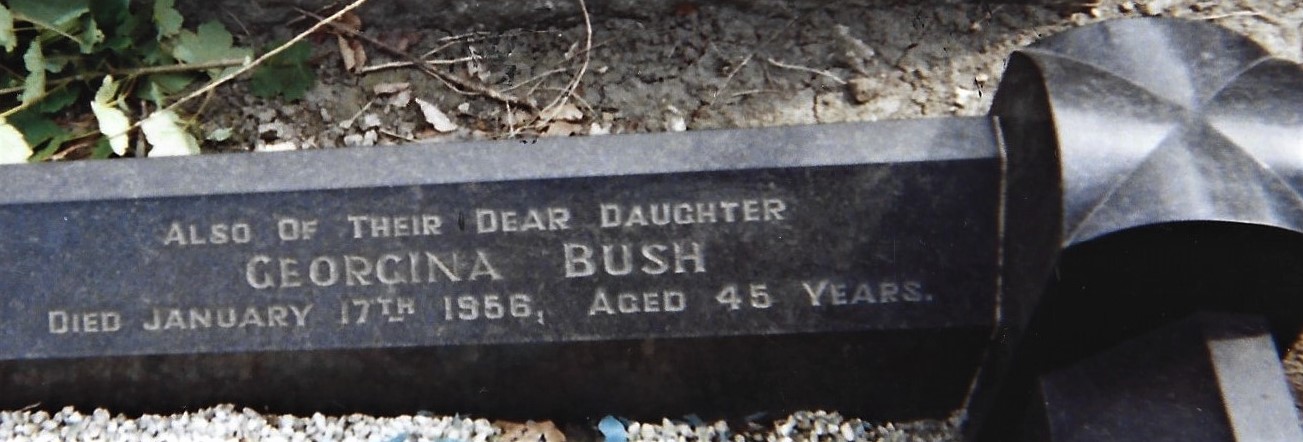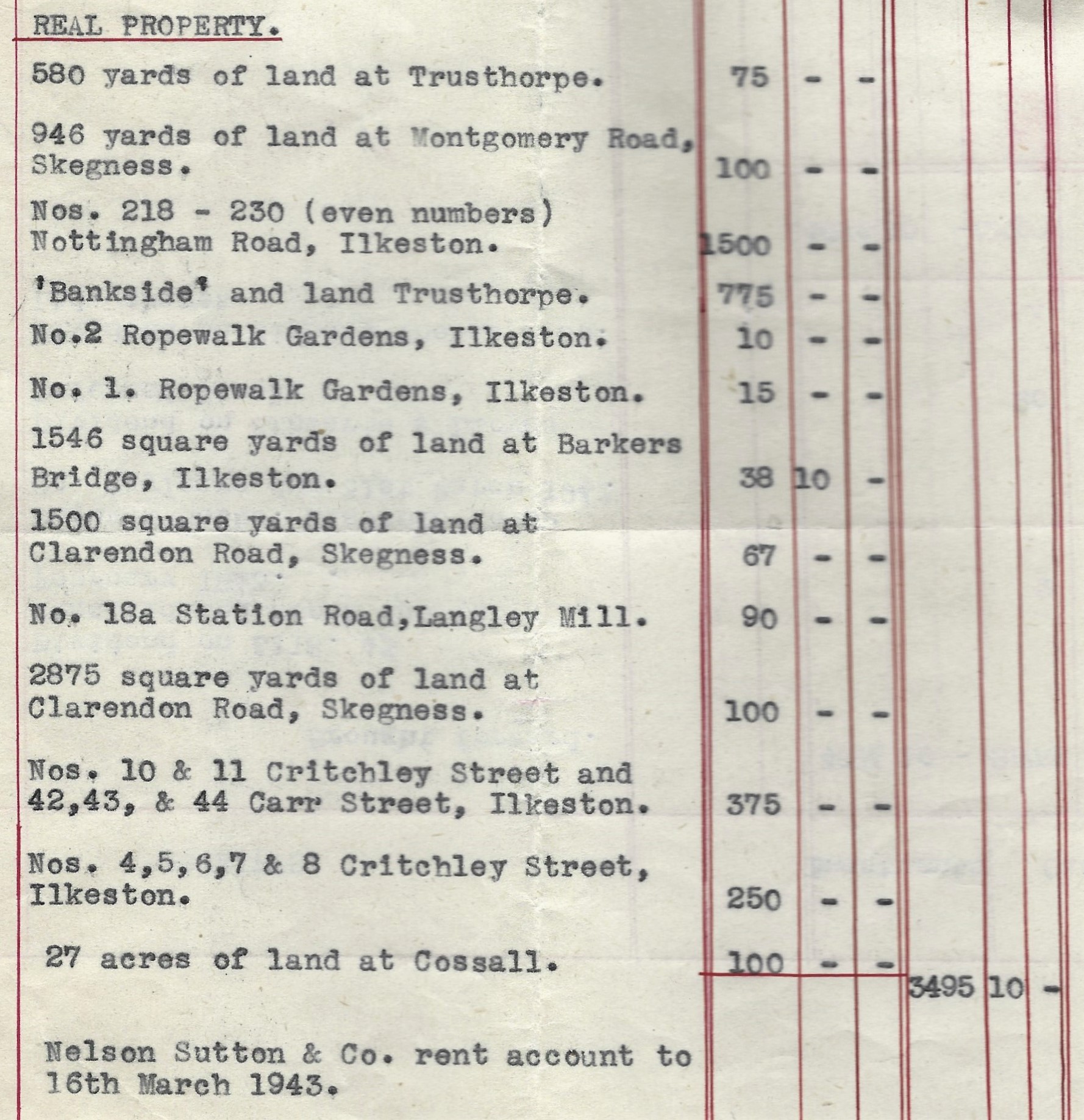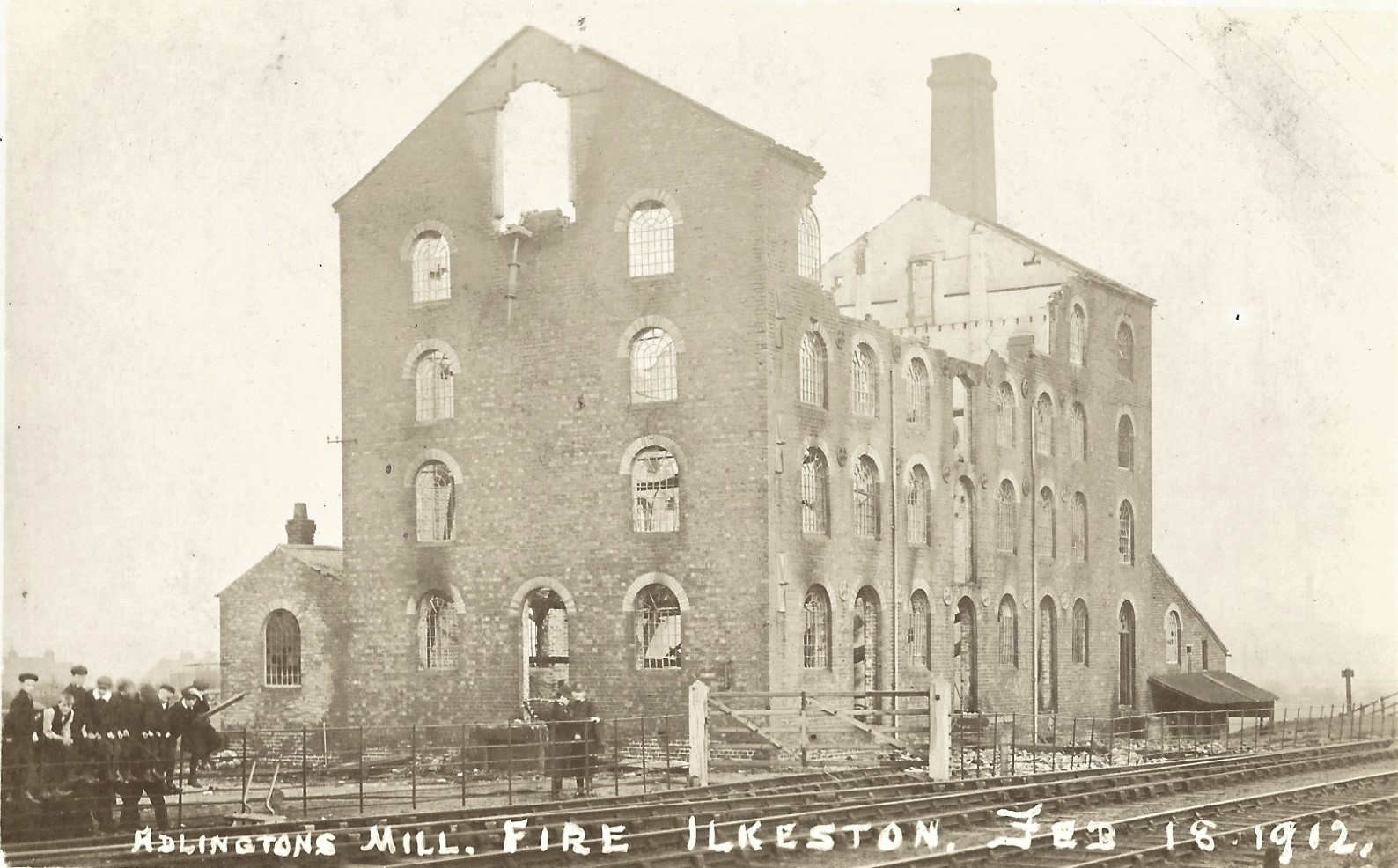Shaws in Station Road
Much of this page is thanks to the information from Diana Osman. She recalls very fondly her childhood in Ilkeston, at the Vines and at the Cooke family business at Wash Meadow … “from Chaucer School to Hallcroft and then to Berkhamsted School for Girls aged 12-15 (my sisters followed me). Left school at 15 to work in my Dad’s office. I recall sorting rags, working in the Mill, Rutland Street, using a weighbridge — weighing bones collected from butchers every Monday. My first wage was £2 10s per week”.
Reuben Shaw was born on April 10th, 1836 at Ilkeston, the son of William and Alice (nee Revell). He married Sarah Ann Calladine, a daughter of coalminer Thomas and Ann (nee Beck) on May 12th, 1856, and together they had ten children. He and his family lived the latter part of his life in the Station Road/Critchley Street area until his death on October 10th, 1886.
Critchley Street (from the Jim Beardsley Collection)
As we have just seen, he was a man with many ambitious plans, not all of which came to fruition. He was a younger brother of Samuel Shaw (c1830-January 3rd, 1904), a successful and prosperous brickmaker living in the Lower Chapel Street area — we shall visit him shortly.
The oldest surviving daughter of Reuben and Sarah Ann was Georgina/Georgiana Shaw, born in 1871, who married James Cooke on April 30th, 1888.
Although initially a coalminer, by the end of the century James Cooke was trading in Critchley Street as a ‘marine store dealer’ (alias a ‘Rag and bone merchant’) …
… though probably not owning a shop quite like that of Mr Krook, another Victorian marine store dealer, in Charles Dickens’ Bleak House (right) (1852, by Phiz)
Here, I would like to thank Diana Osman who has shared her ‘Cooke family history‘ … she writes that “my grandma Georgina Cooke bought The Vines on Station Road in about 1935, a huge house divided into four flats on one side while our family lived on the other side. We also owned a small filling station and a cricket ground with a pavilion, behind the house”.
The Vines in 1959, with its filling station, cricket ground and pavilion (now the site of a motor retailer)
In the map above, the unnamed roadway to the west (left) of the house is the Ropewalk. In the east (right edge) the River Erewash is the boundary between Derbyshire and Nottinghamshire.
———————————————————————————————————————————–
Georgina’s letter
Georgina was a women with fiercely-held views and you could be led to believe that she was a Suffragette. I leave you to decide.
Suffrage descibes the right to vote. Suffragists agitated through peaceful means for women’s suffrage while Suffragettes were determined to win such suffrage through any means, including violent and unlawful acts. Before 1918 no women were allowed to vote in parliamentary elections. Then in 1918 the right to vote for women over the age of 30 and who met certain property qualifications was achieved. And in 1928 that ‘right’ was extended to women over the age of 21, in line with male voting rights at that time.
The photo above shows Georgina, with her son Jim (James Reuben), outside the Vines filling station.
Georgina wrote the following letter for her grandchildren to read; all her words are here and I have used it as it was written except for a few added breaks.
England being a Democratic country in olden times rich men or men of property only had votes. After came men householders, who became enfranchised. Then after a long and bitter agitation and militancy, Women won The Vote. I will explain to you what I have experienced in my lifetime.
The education of women in ages past has been neglected. That of man seemed to engross the whole care and attention and women as if a whole species apart, was left helpless to themselves. They didn’t consider we composed one half of the world. That it was most necessary to be United to us.
“bringing up children is entrusted to our care”
By the most tender alliances. That we make there Happiness or Misfortune according as we are capable of using our senses,
that it is by us Families are suported or extinguished: and that the bringing up of children is entrusted to our care, at a time when there minds are capable of receiving the most lasting impressions.
To my mind it is most important for women to understand The Value of the Vote than men. By the laws of nature women by her maternal instinct of love of home and family, she can and will sense dangerous intruders; if her country is in danger her home is in danger.
To my mind the majority of young men of 21 having the parliamentary Vote cast his Vote in a slipshod manner without sufficient searching of his mind. There is too much envy hatred and malice infused in there minds by men who is out to make an easy living. They are capable of being easily influenced by false hopes. Seeing that Votes are the voice of the country it is like the signing of a contract and the result is for good or evil and will sooner or later come home to roost.
Many and wonderfull reforms on behalf of women has been brought about. Before women had the vote she was not consided a person. Her children did not belong to her. By law they belonged to her husband. Since the vote the mothers have equal claimage of her children.
The divorce laws which was a freak injustice to women suing her husband for divorce had to prove cruelty as well a adultry. But her husband had only to prove adultry.
I myself was a Member of the Women’s Tax-resistance League. I attended a meeting at the Caxton Hall london on april 1913 to protest against paying taxes and demand no taxation without representation.
The photograph above was taken on Monday 18 May 1914 at the sale in Hampstead of goods belonging to Mrs Louisa Thomson Price and others – all of whom had refused to pay their tax. ‘No Taxation Without Representation’ was the motto of the Tax Resistance League.
The Women’s Tax Resistance League existed from 1908 to 1918.
As Beatrice Harraden, author and a League member explained ….
The least any woman can do is to refuse to pay taxes, especially the tax on actually earned income. This is certainly the most logical phase of the fight for suffrage. It is a culmination of the Government’s injustice and stupidity to ask that we pay an income tax on income earned by brains, when they are refusing to consider us eligible to vote.
The league was formed with the slogan: “No vote, no tax”.
It is non-partisan—an association of constitutional and militant suffragists, recruited from various suffrage societies for the purpose of resisting taxes.
Georgina’s letter continues …
Thanks for the power and value of votes for women which was the lever to bargin with. The Government (that be) gives equal rights, for both parents, also the Devorce law is equal for both man and wife. Married women who worked hard in her husband’s business.
The abatement allowance is now alowed to the wife as well as her husbnad. Now also women enjoys the same priveleges of abatement of her husbands income. Many reforms has been made in his majestys prisons for women. Since she had the vote. Astounding it is when we think of the education of women in a ll standards of life in Chemistry. Medicine. Business. The Law. Science. Art.
We have women mayors. Majistrates. Inspectors. Poor Law Guardians. Members of Parliament. Town Councillors. Contoling Directors of Industry.
We have seen since women had the vote Equal rights of opportunity with men. It has opened the avenue of her Emancipation. We have not only had one Florence Nightingale alone. But a multitude of such women. Women happy in there own life and equipped mentally morally and economically for the service of there country. They and there fellow workers together posess an enormous political strength. She will hold up the light by which other men and women will see. One of the most Important Forces in the progress of society lies on the impress she conveys to others.
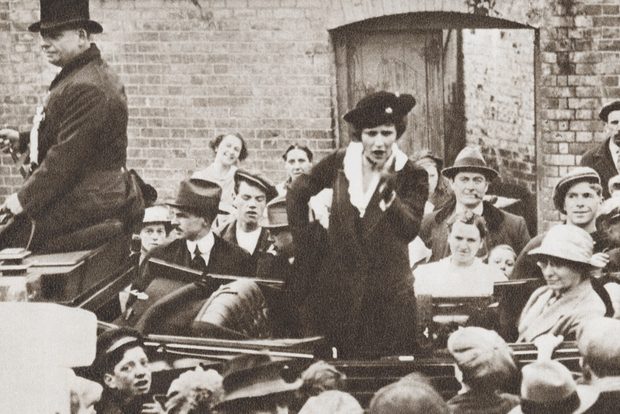
Nancy Witcher Astor, Viscountess Astor, the first woman to sit as a Member of Parliament, from 1919 to 1945, seen here campaigning during the 1919 Election. (Photo Getty Images)
Unfortunately to my mind present day education in the schools is greatly lacking of the kind of instruction. The cementing impressions on the minds of children the deep toned love of country. The sowing of seeds in there minds of self reliance self confidence, of there being there own rock wherewith to lean on when they start there journey through life. The shaping of character. To work out there own salvation. Mental psychology of mind over matter.
Georgina’s letter concludes with a dark, unfinished warning …
Enlightenment on these truths are very obscure.
On the contrary, families are now raised and the impress is stamped on there minds that if they vote the way of the Socialist theory Fairy God mothers assistance for this and that an easy getting through sort of existance. And leaning on any rock but themselves expecting something they never earned and never deserved.
We all know that this state of affairs is manifesting very rapidly. And are making themselves slaves to the ready made opinions of others a many sheep but few shepards; it makes you sense by there actions, if not by there words all we like sheep have gone astray.
We must recognise that we are brought face to face with a tremendous force, a force beginning like some tiny streamlet becomes like the end a mighty torrent. Which unless controlled …..
The result of following the ‘Socialist theory’ (commons.wikimedia)
And here is the same warning in Georgina’s own hand …
—————————————————————————————————————————————-
The Cooke family
James Cooke senior (left) was born on May 4th, 1866, the son of blast furnaceman Lot and Ann (nee Dolman).
He married Georgina Shaw on April 30th 1888 at St. Mary’s Church in Ilkeston.
Born on October 23rd, 1893, James ‘Jimmy’ Cooke was the older son of James and Georgina, (although his birth registration shows his name as Reuben James Cooke). Like his father he traded as a marine store dealer, though as a young man he played football (quite successfully ?) as an outside right for both Ilkeston FC and Notts County FC.
The Cooke family at war
In 1916 Reuben James enlisted as James Reuben, (then a marine store dealer, aged 22 years and 5 months, of Station Road, Ilkeston) for the Motor Machine Gun Section.
Because of an injury to his right hand he was transferred out of the Tank Corps in February 1919 and granted a war pension in April of that year.
The Cooke family at work
While living at Station Road, James stood unsuccessfully as an Independent candidate for the Market Ward at the municipal elections in 1932
from an official guide to Ilkeston 1953 for the Cooke family business
‘Cookies‘ scrap metal and rags merchant occupied the Old Mill (formerly the Adlington Mill site) at the junction of Rutland and Belfield Streets.
Taken from the south, the photo above shows the entrance to the scrap yard on the extreme right. In the centre is the entrance to Belfield Street while on the left is the end of Rutland Street. The level crossing stands over the old Midland Railway branch line connecting Ilkeston Junction station with the Ilkeston Town station. By this time the business had been bought by the Ilkeston Metal and Waste Co. Ltd.
The photo below, of the mill, was also taken from the Wash Meadow area in the south.
Later James was in business as a metal merchant at 178 Wollaton Road, Nottingham. I believe he died in 1966.
The Cooke family at ease
The family on holiday.
In the photo (directly above) Georgina is on the right and her grand-daughter (?) on the left. James William ‘Jimmy’ Bush, born in 1920, was the son of William Bush and Elizabeth Ann (nee Cooke) and thus Georgina’s grandson. He is in the middle of the photo (aged about 9 ?) … dating the photo to about 1929. You can also see him in the first photo
The beach photo was taken at Trusthorpe, a small coastal village in Lincolnshire, about 2 miles south of Mablethorpe and 12 miles north of Skegness. The family owned premises and land there, as well as land in Skegness, at Montgomery Road and Clarendon Road.
James and Georgina relaxing
The Cooke family at peace.
There is a family plot at Park Cemetery where several members of the family are buried.
… and their eldest child Elizabeth Ann, who married William Bush in 1909. Georgina Bush was their only daughter.
…. and their youngest child Francis William, father of Diana
The Cooke family legacies
Georgina died on January 15th, 1943, by which time she was a wealthy woman …. “not bad for a Rag and Bone lady” (Diana)
Her estate included several properties, many of them in Ilkeston … Nottingham Road, Ropewalk, Barker’s Bridge at Awsworth Road, Critchley and Carr Streets.
There was also a long list of stocks, shares, bonds and securities, and bank accounts.
Legacies were left to Georgina’s grandchildren, Georgina and Jimmy Bush; to Dorothy May Cooke (nee Cooke), her daughter-in-law (the wife of her son, James Reuben) and who was also the niece of her husband; her other daughter-in-law Margaret Annie Cooke (nee Thompson), (the wife of her son Francis William); and ‘Mrs. D Robinson’ … this was Daisy Robinson (nee Shaw), Georgina’s sister. In 1897 she had married coalminer William Amos Robinson who, within a year, had separated from Daisy and their baby son and had neglected to maintain either of them. Initially, after the marriage, they had lived with Daisy’s mother Sarah Ann, in Station Road, before moving to Canal Street. It wa s there that William Amos began to physically abuse his wife, such that Daisy felt compelled to return to her mother’s home. A period of unsuccessful reconciliation was followed by a court case at which Georgina gave evidence for her sister. An Order of Separation was granted with William Amos contributing 7s towards his wife’s maintenance, while the custody of their son was granted to her also.
——————————————————————————————————————————————
The Old Mill
Just after midnight on Saturday, February 17th 1912 a serious fire destroyed Adlington Flour Mills, sited to the east of Springfield Terrace, and north of the Midland Railway branch line from Ilkeston Junction to Ilkeston Town. The mill had been built in 1877 by William Sampson Adlington of Kirk Hallam* (below). As you can see, it was a structure of four stories with a basement, 60 ft. long and 40 ft. wide. Although it contained a lot of valuable equipment, it had not been in regular use for several years. The damage was estimated at £10,000 (today worth over £1m).
Turner Photo, Ilkeston … from a contemporary postcard (Jim Beardsley’s Collection)
——————————————————————————————————————————————–
Now we are well beyond North Street

